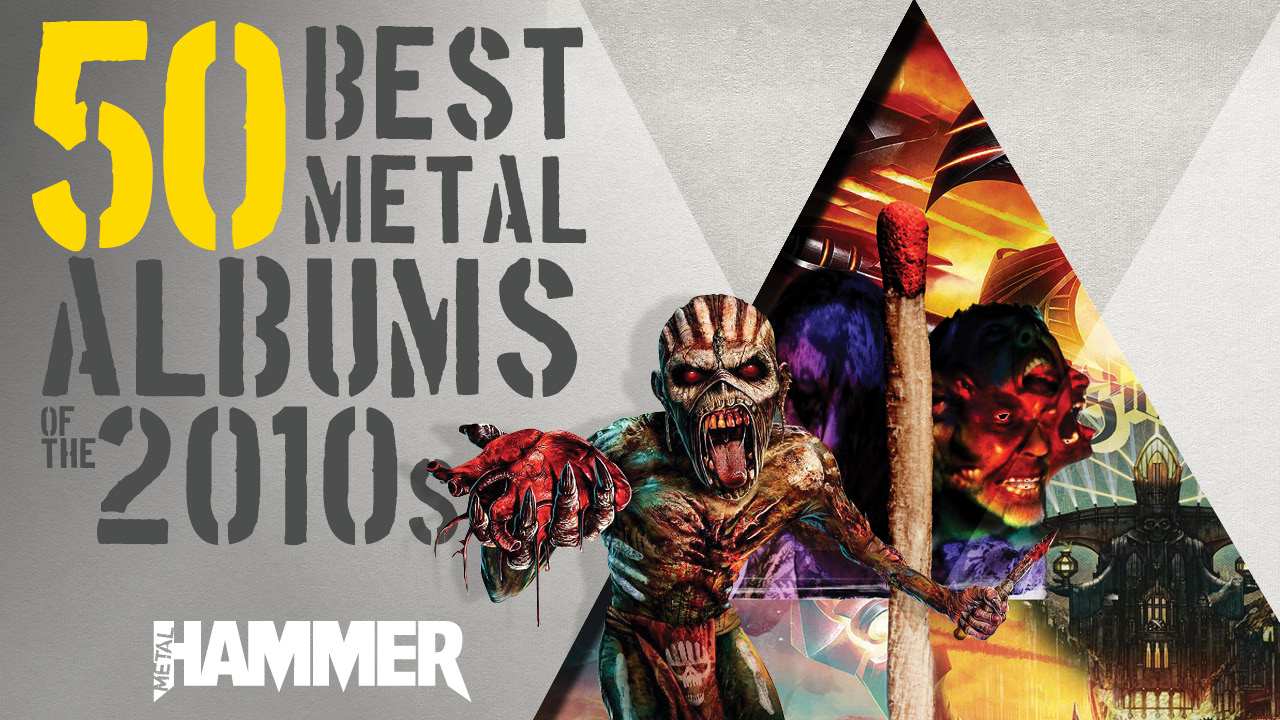As we reach the end of the decade, now's as good a time as any to reflect on era which has legitimately shown just how innovative and unique metal can be.
While the old guard – bands such as Slayer, Megadeth and Metallica – released albums which showed them keeping step with their contemporary counterparts with ease, it was the scene's new blood kept which kept things truly interesting. We might have slipped out of the mainstream further than ever before, but all that meant was that sub genres – and sub-sub genres – were invented, existing ones completely redefined, and future classics unleashed onto the world with freedom and focus.
When it came to pulling together the best metal albums the decade has seen, we called on you guys for help. From a long-list of over 200 albums, we asked you to vote for the ones you deemed worthy winners – and vote you did.
We received almost 115,000 votes in total. It was enough to ensure fan favourites we'd missed from our long-list completely comfortably claimed a place in the top 50. Democracy in action, huh?
Here, then, the 50 best metal albums of the last 10 years, as voted by you guys.

50. Power Trip - Nightmare Logic (2017)
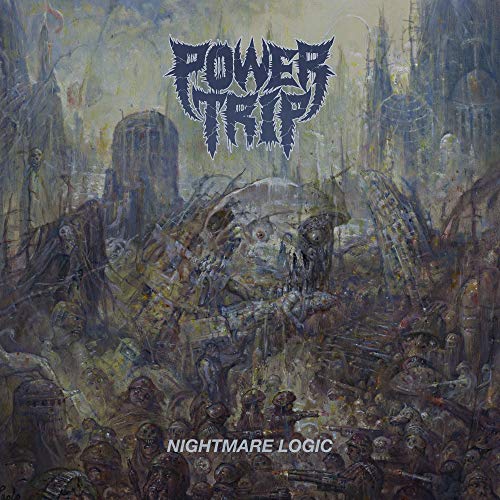
The fact that young bands were still exploring the multifarious delights of thrash fucking metal in 2017 – three decades on from the genre’s hazy inception – spoke volumes about the enduring appeal of speed, aggression and not giving a shit.
Power Trip eschewed the knucklehead party-thrash vibes of many retrogressive thrash mobs in favour of raw, demonic and blistering underground thrash that owed a huge debt to the early works of Slayer and Kreator, while still managing to sound like a 21st-century concern.
A few nods to the early Swedish death metal scene were discernible within the breakneck nastiness of opener Soul Sacrifice and first single Firing Squad, but Power Trip were gleefully smashing boxes before anyone could start ticking them.
Harder, heavier and more cohesive than their Manifest Decimation debut, Nightmare Logic was precise and snappy enough to win over hardcore fans too. Ultimately, though, this was a defiant storm of unapologetic old-school metal spirit, delivered with supreme snottiness and energy levels fit to blow Hell’s fuse box.
Our score: 7/10
49. Carcass - Surgical Steel (2013)
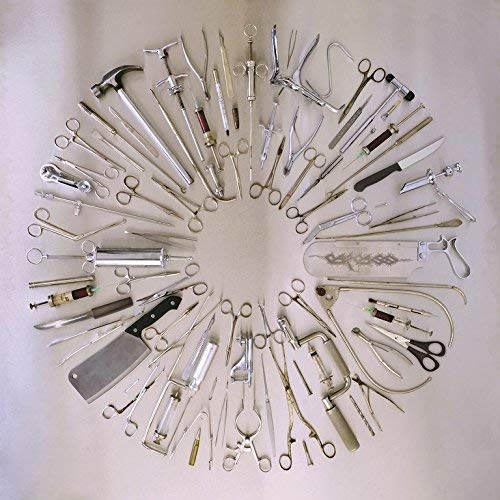
Whether you worship at the altar of death metal, metalcore or grind, few bands are more worthy of laudation than Carcass.
Seventeen years after the release of their final album, Swansong – a record that garnered an equivocal response from the band’s fanbase – the news that Jeff Walker and Bill Steer had decided to reconvene their offal-drenched alma mater and make a follow-up was met with a mixture of feverish excitement and trepidation.
But we needn’t have worried. It was stubbornness and an unconditional respect for their own legacy that kept Carcass away for nearly two decades and those two qualities were plainly underpinning what could only be described as a breathtaking return to action. Everything the diehards could possibly desire and more, Surgical Steel was a triumph for integrity and a meticulous approach to delivering the goods. Surgical Steel was a more precise, technical and aggressive beast than anything in Carcass history.
One hundred and 10 seconds of flat-out and fiery death with a thick undercurrent of futuristic speed metal, Thrasher’s Abbatoir hurled down the gauntlet to younger generations of extreme metal bands with an air of ‘Fuck you!’ thrown in.
It never felt like a step back. Instead, songs like the punishing riff-maze of Non Compliance To ASTM F899-12 Standard or the tectonic grind of closer Mount Of Execution represented a refined evolution of the Carcass sound, with all their trademark elements and quirks retained but with newfound momentum. There were no weak spots, no detours into hard rock territory and absolutely no fucking compromises on offer here.
Veteran status be damned. Surgical Steel was as pure and perfect as could be.
Our score: 9/10
48. 3Teeth - Metawar (2019)

3Teeth emerged in 2013 from metal’s underbelly, leaving behind a streak of glinting mimetic alloy and a whiff of leather. Since then they’ve morphed, like a PVC-clad T-1000, into high-concept cyber warriors with a flair for hyper-sexualised drama. In 2014, their self-titled debut grabbed the attention of Tool guitarist Adam Jones, who invited the band to open for the alt-rock pioneers on their 2016 US tour. Then their follow-up, <shutdown.exe>, put them in front of equally huge crowds, this time supporting Rammstein.
On third album Metawar, it seemed that 3Teeth had picked up a trick or two from Lindemann and co, delivering a record that upped the ante on their previous material with a bigger, sleazier and darker sound. Enigmatic frontman Alexis Mincolla had always instilled deeper meaning to the band’s mechanical thunder and described Metawar as “a sonic attack on the wide scale perception management systems that currently grip our worlds.” Accordingly, opener Hyperstition noted ‘As the cost of living continues to go up, the value of life goes down’ and there was discontent abounds in the buzzsaw synths of Affluenza and reptilian swagger of Sell Your Face 2.0, which took swipes at corruption and greed.
To help them turn up the power and darkness of their corrosive sound, the band enlisted the services of producer Sean Beavan, a man who knows exactly how to exploit the symbiotic relationship between man and machine having worked on some of industrial’s most treasured albums by Marilyn Manson and Nine Inch Nails.
At times the throbbing influence of Ministry, and especially Manson, loomed large over the filthy pulse of President X and in Mincolla’s sneering vocals, but Metawar produced several standout tracks, particularly Exxxit and American Landfill – two corroded, molten anthems that lunged and snapped like a steel-jawed velociraptor. With Metawar, 3Teeth continued their razor-straight upward trajectory.
Our score: 8/10
47. Dream Theatre - Distance Over Time (2019)
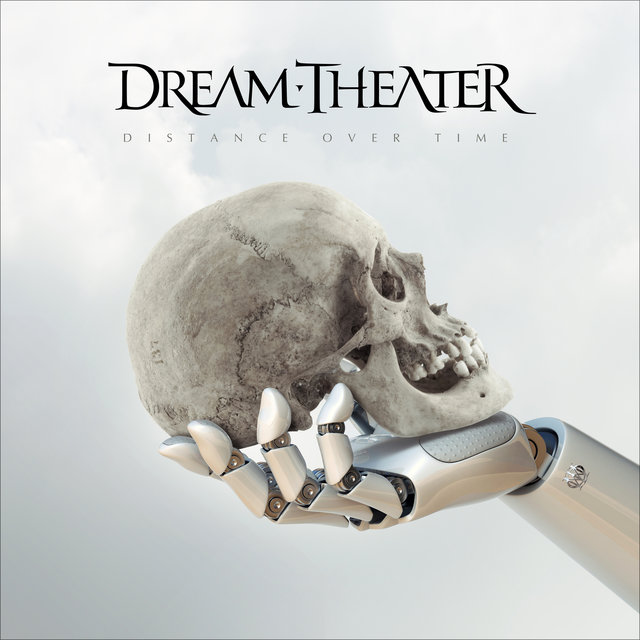
At times, guitarist John Petrucci’s shredding on this record was so insanely, implausibly fast, that it recalled the sound cassette tapes made when they jammed and became spaghetti.
These Berklee College Of Music drop-outs will forever be labelled prog-metal, but at heart this album was metal with just the occasional hint of prog. Like Muse after excessive espressos, they planted a bomb under bombast.
The band moved into an upstate New York barn (which, luckily, was also a state-of-the-art studio) where, for the first time in their 33-year history, they lived together while recording. Their claim that this enhanced their energy and enjoyment was supported by the direct, headsdown avalanche of aggression on the record.
Drummer Mike Mangini seemed intent on proving that Mike Portnoy isn’t missed, while James LaBrie sang in one of those so-clean-it’s-dirty AOR voices.
There were brief pit-stops for pensiveness on the whirling Room 137 and the baroque Barstool Warrior, but the dominant thread was superior thrash.
Our score: 7/10
46. Amorphis - Queen Of Time (2018)
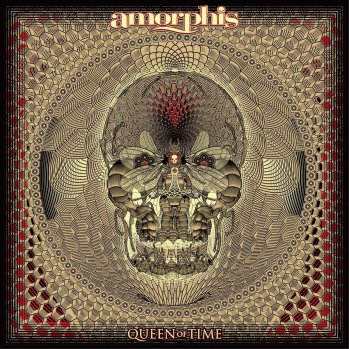
While it’s hard to ignore that Amorphis should be vastly more revered and successful than they are, there is undeniable charm to the Finns’ ability to keep quietly churning out great records.
Queen Of Time marked the band’s 13th album, and it continued the subtle evolution that began on 2015’s Under The Red Cloud, wherein those trademark folk-fuelled melodies, propulsive melodeath riffs and sparkling prog detours collided with a renewed sense of purpose and focus.
Ultimately, and this has always been the case, Amorphis are incredible songwriters; everything from stirring opener The Bee through to lavish, dramatic closer Pyres On The Coast boasted at least one life-affirming hook, and vocalist Tomi Joutsen had never sounded more commanding.
Capped off with a dazzling cameo from Anneke van Giersbergen on the gorgeous Amongst Stars, Queen Of Time was the sound of true unsung heroes proving, again, that they fucking rule.
Our score: 8/10
45. Black Sabbath - 13 (2013)
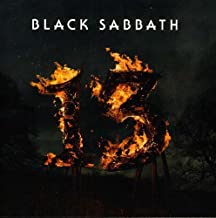
Okay, let's get it out of the way first: no, 13 isn’t as good as Black Sabbath's first six albums – what is? – but it’s a million times better than most of what followed, and way more than you could ever expect from a three men of pensionable age who proved all they had to prove 40 years ago.
Sabbath's 19th studio album started as it should: with an almighty riff. End Of The Beginning was Black Sabbath redux: an eight-minute wallop to the gut that ladled foreboding atmospherics onto tectonic grind, before stepping up its pace around a third of the way through. ‘Reanimation of the sequence rewinds the future to the past,’ howled Ozzy, and while the sentiment may have been pure Doctor Who-circa-1976 hokum, the delivery was gloriously clear-headed: the dead-eyed zombie who multi-tracked his way through his last few solo albums was nowhere to be heard.
They played it cunningly. Amid all the blind idolatry that has grown around the band, it’s easy to forget that every album recorded by the original quartet had its own personality: Black Sabbath was wide-eyed and bluesy; Paranoid swung from pole to emotional pole; Master Of Reality was a rush of blood to the head and Vol. 4 was the dense, druggy comedown; Sabbath Bloody Sabbath was wired and experimental; Sabotage was just mental. Even Technical Ecstasy and Never Say Die were different. Not good. Just different.
Here’s the thing: 13 didn't sound like any one of those albums. It sounded, at various points during its 70-minute length, like all of them: a riff here, a melody line there, the odd ‘Alright now!’ thrown in for good measure. And boy, did it work.
Gripes? Well, this wasn’t wholly Black Sabbath, as Ozzy himself admitted. Bill Ward was the Banquo at the 13 feast, a shadowy spectre lurking in the background as a partial reminder of the business concerns that clouded Sabbath's latter days days. Did the album miss him? Definitely. It lacked the wild edge he brought to matters, the sense that it could all fly off the rails at any point.
But what’s done is done. As time has told, 13 will remain Sabbath's final album. And it was the perfect way to close the circle.
Our score: 8/10
44. Rivers Of Nihil - Where Owls Know My Name (2018)
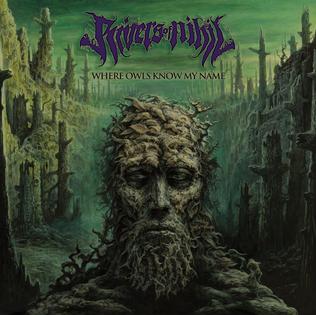
On their third full-length album, Rivers Of Nihil finally did it: they crafted the fully-realised magnum opus that fans had been clamouring for ever since the band first exploded onto the extreme metal scene almost a decade prior.
While The Conscious Seed Of Light and Monarchy were solid slices of experimental aggression, neither hold a candle to this juggernaut, which effortlessly balanced the riffs of Enslaved, the drumming of Gojira, the songwriting skill of Death and the diverse instrumentation of Norway’s Shining.
It was a Frankenstein’s monster of the tech-metal world. Where Owls Know My Name brilliantly blended thoroughbred, American brutality with European adventurousness, and the end result was an undeniable triumph.
If, in future, they can expand upon this disc’s monumental precedent, Rivers Of Nihil could well be the next heirs to the heavy prog throne.
Our score: 8/10
43. Jinjer - King Of Everything (2016)
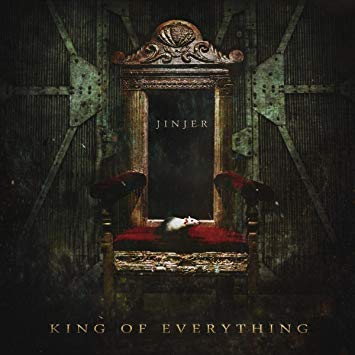
After uploading their video for rabid single Sit Stay Roll Over, one week and 100,000 YouTube views later, Jinjer were snapped up by Napalm Records. Everything was heading in the right direction for this Ukrainian metalcore crew, and rightly so.
Their third album was an accomplished collection of brutality, intelligence and technical proficiency, splicing ferocious Lamb Of God-style grooves with math-metal and djent twists.
At the heart of it all were vocalist Tatiana Shmailyuk and guitarist Roman Ibramkhalilov, whose vocal and riff gymnastics were embroiled in a violent game of cat and mouse.
Tatiana is a ridiculously talented vocalist and her bludgeoning growls were as equally impressive as her rich clean vocals that carried the urgent choruses of Words Of Wisdom and Just Another towards strapping apexes.
The centrepiece of the album, though, was the vast expanse of I Speak Astronomy, which was akin to traversing an inhospitable and polyrhythmic universe of gritty, vivid worlds.
King Of Everything was an unrelenting album that kept you guessing. Oh, and it rocked pretty hard, too.
Our score: 8/10
42. Evanescence - Evanescence (2011)
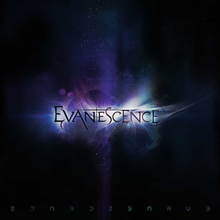
"There’s a reason it’s called Evanescence," Amy Lee told us in 2019. "We are so proud of it. On the first one we were still kids and trying out a lot of things – we wrote My Immortal when I was 16 – and [2006 sophomore] The Open Door was a departure in some ways. Growth makes you a better musician."
Well, she was right there. When Evanescence dropped in 2011, you would've been forgiven for having forgotten exactly what that word meant. It had been five years since the band had been fully active, but while the dictionary definition suggests “the process of vanishing or fading away”, after selling over 20 million albums in their career at that point, the chances of them sloping off into the annals of history were slim.
Nick Raskulinecz is a name you can't avoid when you spend any time digging through the significant rock albums created this decade. Having produced the likes of Alice In Chains, Rush and Deftones over the last 10 years, he’s no stranger to the proverbial big rock record and, with Evanescence, married grungy, alternative rock heaviness with the huge pop sensibilities that Bring Me To Life brought to the fore back in 2003. Indeed, Lee described the band’s sound at the time as “almost like Janet Jackson meets Nirvana or something… in my own head anyway.”
Opener and single What You Want boasted a refrain of ‘hello, hello’ that – given Lee's description – perhaps intentionally mimiced Nirvana. As Lee sang throughout of oceans, love and freedom, the whole thing proved itself sturdy and slick: half Narnia, half Creed, all good.
41. Between The Buried & Me - The Parallax II: Future Sequence (2012)

It's a mark of quite how exceptional Between The Buried & Me’s songwriting skills had become that the first noticeable seam in The Parallax II – the first point you could tell one episode was ending and another beginning – was the electronic interlude, Autumn. That was four tracks and nearly 20 minutes in.
The furious, cheerfully catchy and quirky-without-being-annoying trademarks were all present, as were the switches between vicious heavy metal, prog complexity and pure hook deliverance. The unpredictability quotient remained high – Extremophile Elite veering into xylophones, Telos switching from Meshuggah-esque assault into jazz into a bombastic melodic refrain and Bloom breaking out into 12-bar blues.
But it was the degree to which the bonkers tangents made sense that made The Parallax II such a joy. A record that bombarded the ear with ideas at what should have been an unintelligible rate and had a mammoth running time seemed to zip by in the blink of an eye, one section flowing into another to form one cohesive opus that ended far too soon. It was mighty clever and fabulously fun.
Our score: 8/10
